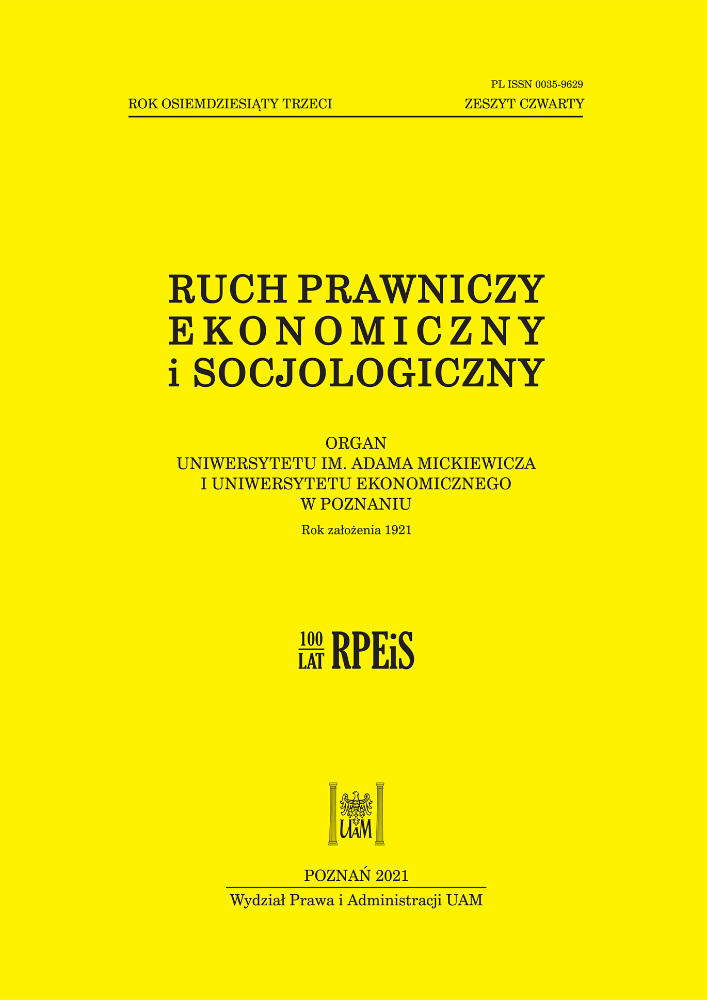Abstract
The aim of the article is to present Donald Trump’s climate denialism as an example of political post-truth, where the facts are of less importance than referring to emotions and personal convictions. Trump’s convictions on ‘global warming’, particularly in their media popularization, played a key role in the production and distribution of political discourse by the former American president and the way he expressed his power. The research perspective is essentially developed on the basis of critical discourse analysis.
References
Abbott, T. (2009). Battlelines. Melbourne: Melbourne University Publishing.
Alba-Juez, L. (2009). Perspectives on Discourse Analysis. Theory and Practice. Newcastle upon Tyne: Cambridge Scholars Publishing.
Coscarelli, J. (2017). Kellyanne Conway Admits “Blowing Green Massacre” Error. The New York Times 03.02.2017. <https://www.nytimes.com> [dostęp: 20.04.2020].
Czyżewski, M. (2009). Między panoptyzmem i „rządnomyślnością” – uwagi o kulturze naszych czasów. Kultura Współczesna 2(60): 83–95.
Delingpole, J. (2011). Climategate 2.0: A New Batch of Leaked Emails Again Shows Some Leading Scientists Trying to Smear Opponents. The Wall Street Journal Nov.11.2011. <http://t.co/DdW3Hsvn> [dostęp: 11.05.2020].
DiChristopher, T. (2017). EPA Chief Scott Pruitt Says Carbon Dioxide is not a Primary Contributor to Global Warming. <https://www.cnbc.com/2017/03/09/epa-chief-scott-pruitt.html> [dostęp: 4.06.2020].
Dijk van, A. T. (1991). Racism and the Press. London–New York: Routledge.
Dorczak, R. (2017). Wokół reform edukacji z 2017 roku. Krytyczna Analiza Dyskursu (Monografie i Studia Instytutu Spraw Publicznych Uniwersytetu Jagiellońskiego). Kraków.
Dunlap, R.E., McCright, A.M. (2008). A widening gap: republican and democratic views on climate change. Environment: Science and Policy for Sustainable Development 50(5): 26–35.
Duszak, A. (1998). Tekst, dyskurs, komunikacja. Warszawa: Wydawnictwo PWN.
Garrett, B. (2012). Do not blame Sunday for global warming. The New York Post Nov. 2, 2012. <http://t.co/o2VHHPOa> [dostęp: 11.5.2020].
Grzenia, J. (2004). Strona WWW jako strona dialogowa, [w:] M. Kmita (red.). Dialog a nowe media. Katowice: Wydawnictwo Uniwersytetu Śląskiego.
Happer, W. (2012). Global warming models are wrong again: the observed response of the climate to more CO2 is not in good agreement with predictions. The Wall Street Journal Mar. 27, 2012, <http://t.co/RK1UoS8e> [dostęp: 11.05.2020].
Harris, T., Carter, B. (2014). Leo vs. science: vanishing evidence for climate change. The New York Post Sep. 17, 2014. <http://t.co/fEYAhQ7lGB [dostęp: 11.05.2020].
Jabłońska, B. (2006). Krytyczna analiza dyskursu: refleksje teoretyczno-metodologiczne. Przegląd Socjologii Jakościowej 2(1): 53–67.
Jackson, D. (2017). Conway backs Spicer’s version of “facts”. USA Today 3.01.2017. <https://eu.usatoday.com> [dostęp: 28.04.2020].
Jäger, S. (2001). Discourse and knowledge: theoretical and methodological aspects of a critical discourse and dispositive analysis, [w:] R. Wodak, M. Meyer (eds.). Methods of Critical Discourse Analysis. London: Sage Publications: 32–62.
Fairclough, N. (1989). Language and Power. London: Longman Group Ltd.
Gackowski, T., Brylska, K., Patera, M., Galan, K., Piórecka, K., Kowalczyk, M., Kwiatkowska, A., Rajchert, M., Białek, A., Sztyber, M., Kalinowska, M. (2019). Ćwierkający Donald Trump. Czym Jest Tweeter dla użytkowników, dziennikarzy i prezydenta USA. Od analizy dyskursu po badania okulograficzne. Toruń: Wydawnictwo Adam Marszałek.
Kaczynski, A. (2017). Trump pick for top environmental post called belief in global warming a ‘kind of paganism’. <https://edition.cnn.com/2017/10/19/politics/kfile-kathleen-hartnett-white-paganism/index.html> [dostęp: 4.06.2020].
Kopytowska, M., Kumiega, Ł. (2017). Krytyczna analiza dyskursu: konteksty, problemy, kierunki rozwoju, [w:] M. Czyżewski, M. Otrocki, T. Piekot, J. Stachowiak (red.), Analiza dyskursu publicznego. Przegląd metod i perspektyw badawczych. Warszawa: Wydawnictwo Akademickie Sedno: 177–180.
McWhorter, J. (2017). How to listen to Donald Trump every day for years. The New York Times Jan. 21, 2017. <https://www.nytimes.com/2017/01/21/opinion/sunday/how-to-listen-to-donald-trump-every-day-for-years.html> [dostęp: 20.05.2020].
Mufson, S., Sullivan, S. (2017). Rick Perry expresses ‘regret’ for pledging to abolish Energy Department. The Washington Post Jan. 19, 2017. <https://www.washingtonpost.com/business/economy> [dostęp: 4.06.2020].
Ryoo, J., Bendle, N. (2017). Understanding the social media strategies of U.S. primary candidates. Journal of Political Marketing 16(3/4): 244–266.
Szacki, J. (2002). Historia myśli socjologicznej. Warszawa: Wydawnictwo Naukowe PWN.
Trump, D.J., Schwartz, T. (1987). Trump: The Art of the Deal. New York: Ballantine Books.
Trump’s World. The New Nationalism (2016). The Economist Nov. 19, 2016. <https://www.economist.com> [dostęp: 11.05.2020].
Trutkowski, C. (2004). Wybór czy konieczność – o potrzebie wykorzystania analizy dyskursu w socjologii. Kultura i Społeczeństwo 48(1): 53–67.
Williams, Ch.W. (2017). Introduction: social media, political marketing and the 2016 U.S. election. Journal of Political Marketing 16(3/4): 207–211.
Wodak, R. (1991). Turning the tables: antisemitic discourse in post-war Austria. Discourse & Society 2(1): 65–83.
License
Copyright (c) 2021 WPiA UAM

This work is licensed under a Creative Commons Attribution-NonCommercial-NoDerivatives 4.0 International License.





